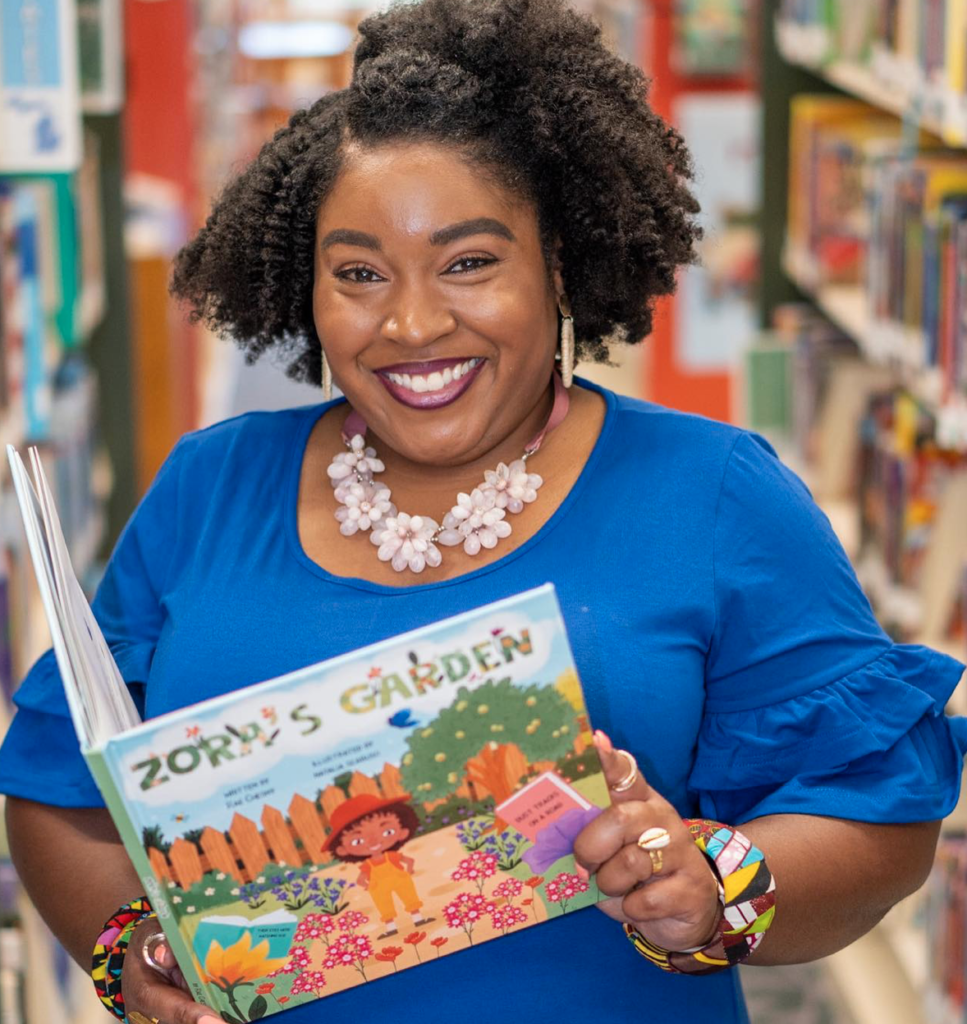Mention the name Zora Neale Hurston, and it won’t take long for the words “Oh yeah, the author of Their Eyes Were Watching God” to follow. If you are in a room of bibliophiles or writers, especially Black female writers, they will quickly profess their love of Zora. I, however, was not one of them. Though I suppose loving Zora is a prerequisite for being well-read in women’s literature, I never felt the desire to pick up a single thing she had authored until 2018. Not even Maya Angelou, Alice Walker, Toni Morrison, or the other mothers of Black women’s literature could persuade me to jump on the Zora Train.
(Please note that I had only read a few books by Toni at the time.)

In 2018, I worked primarily as a children’s author and created social education programs to get Black and brown children excited about literacy. My work led me to a partnership with Michigan State University’s Residential College in the Arts and Humanities. That partnership brought me on campus as a guest lecturer. I got to teach MSU students about the program methodologies I used in historically underserved communities. The students would then use them in their own community engagement projects. After seeing his students’ engagement, the professor who oversaw the partnership asked me to be a guest speaker for the Black History Series he was starting.
The presentation focused on the Black literary figure that most influenced my career and work. I honestly didn’t have one, but I said yes anyway. (I am someone who says “yes” very often in life out of sheer curiosity.) Quickly I recalled some poetry by Langston Hughes because of the praise he received for his focus on the “everyday Black man.” I was sold on it because he used simple concepts without all the big fancy words authors often use to showcase their masterful intelligence.
As I began my research on Langston, I noticed something. Zora Neale Hurston kept popping up. I couldn’t help but get sidetracked in finding all of the endless facts about her contributions to literature and Black and American culture. To top it off, this woman, born seven years before my great-grandmother, was, for all intents and purposes… a total badass.
Before long, my intrigue was replaced by sudden anger. Zora had been a prominent figure during the Harlem Renaissance like Langston Hughes and, at one point, the two had been best friends. So why in the hell wasn’t Zora being recognized and celebrated in the same manner as Langston? I gathered up my nerves, the little that I had learned, and tacked Zora onto my Langston presentation.

The presentation went well, and the professor booked me for the next year on the spot. I immediately began researching Zora to prepare for the following year’s presentation, but my insecurities surfaced. I hadn’t even honestly tried to publish the novel-length manuscript I worked on in college; I had maybe two professional writer friends. Never had a fellowship or a writer’s residence, and I certainly wasn’t a part of any artistic movement as far as I could see. And no, I still hadn’t read Their Eyes Were Watching God. So besides the personal feeling of inadequacy as a longing writer, I began to feel even less like I had the right to be presenting on the remarkable Zora Neale Hurston. Especially when many more accomplished people were already doing it. But here is where I credit Zora. When she chooses you, she chooses you.
The Shift.
As a Zora Neale Hurston Scholar, these last few years have changed every corner and piece of me.
The shift started when I opened myself up to the possibility of knowing Zora. I read many letters that she wrote to friends, contemporaries, business contacts, frenemies, and associates – traveled to places in her home state of Florida, places she had been, on my dime. I read texts written about her with love, compassion, and truth. Learned about her family. And above all, I began to talk to her directly through letters I penned to her. I asked questions, shared who I was, what I was going through, and many of the deepest desires that I dared not utter out loud. Zora answered me with her own voice and proof of her journey. Even when I didn’t believe it, she showed me the twinness of her journey and mine in serendipitous ways.
As I immersed deeper in my work as a Zora Scholar, she seemed to shed the monolithic stone society had trapped her in. For me, she became a woman who had dreamed, loved, and messed up many times once again. When I started this wildly unexpected journey, I cowered at the likelihood that I ever had a shot in hell at being like Zora. But Zora famously said, “there are years that ask questions and years that answer.” I am in the year of the answer. The answer is no; I am not like Zora. I am Zora.
P.S. Yes, I have finally read Their Eyes Were Watching God, and I love it, but my favorite Zora book is Jonah’s Gourd Vine. My favorite short story is “Drenched in Light.”
